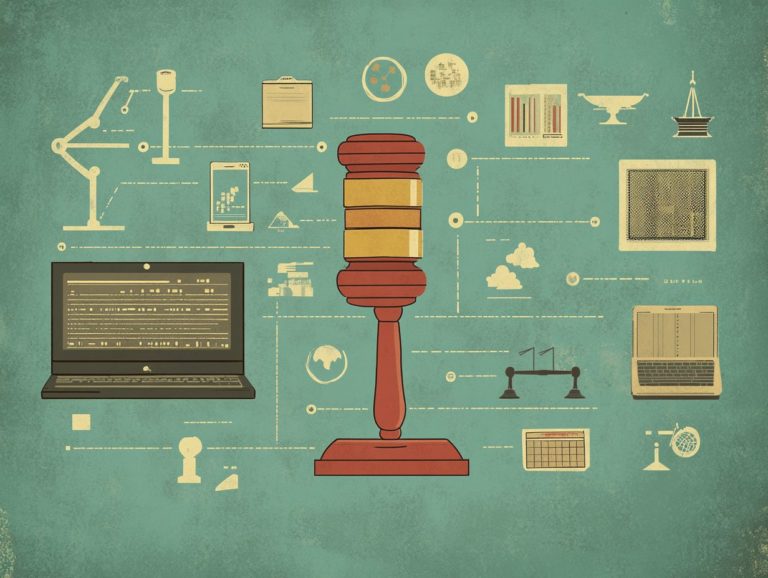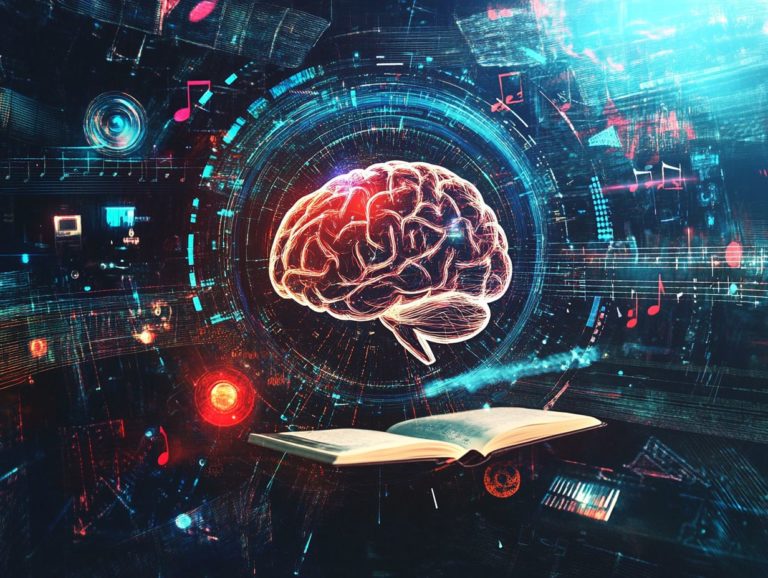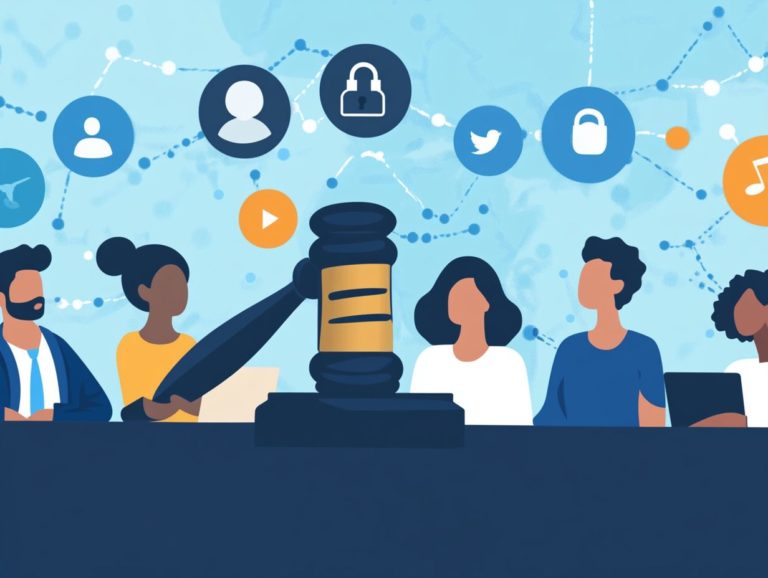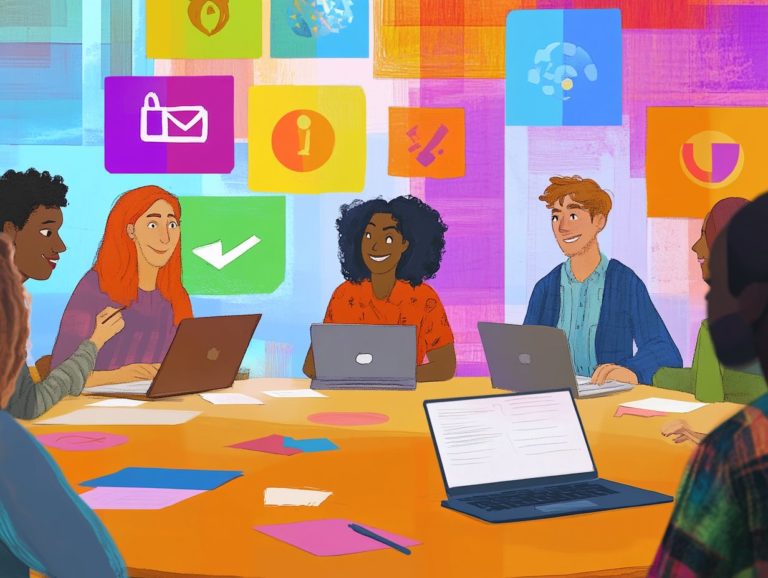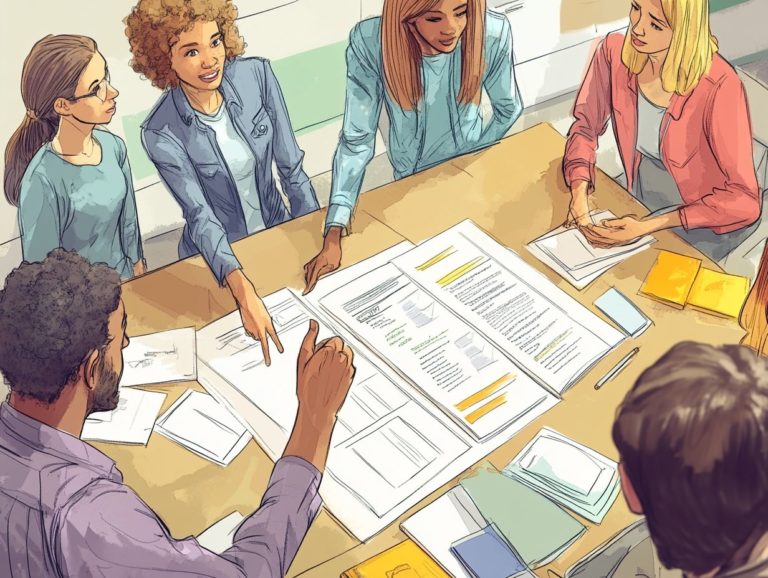Exploring Copyright Law in the EU
Copyright law in the EU protects your rights as a creator. It covers various literary, artistic, and intellectual works.
This law is based on international agreements like the Berne Convention. It sets minimum standards for copyright protection and helps EU countries work together.
This framework not only safeguards your original works but promotes cultural diversity and creative expression throughout the EU. It aligns with various EU directives and regulations governing copyright.
Contents
- Copyright Protection in the EU
- Key Takeaways:
- Infringement of Copyright in the EU
- Challenges and Controversies in EU Copyright Law
- Future of Copyright Law in the EU
- Frequently Asked Questions
- What is Copyright Law in the EU?
- What Types of Works Are Protected Under Copyright Law in the EU?
- How Long Does Copyright Protection Last in the EU?
- Can I Use Copyrighted Material in My Own Work Without Permission?
- What Is the Process for Obtaining Copyright Protection in the EU?
- What Should I Do If My Copyrighted Material Is Infringed Upon in the EU?
History and Evolution of Copyright Law
The history of copyright law in the EU begins with the early implementations of intellectual property rights. Significant milestones include the adoption of the Berne Convention in 1886, which established fundamental principles that many EU member states still follow today.
As creativity evolved, treaties like the Rome Convention in 1961 emerged to protect performers and producers, further enriching the legal landscape.
The formation of the European Union was a game-changer, enabling coordinated efforts through directives like the Copyright Directive of 2001, which aimed to harmonize copyright laws across member states.
Today, the EU must adapt its copyright laws quickly to keep up with the digital age. It tackles challenges posed by streaming services and online content sharing, ensuring that creators’ rights are protected and relevant.
Key Principles and Concepts
Key principles of copyright law in the EU revolve around originality and moral rights. To qualify for copyright protection, your works must showcase a unique expression; it s more than just slapping together some words or images.
Moral rights give you the right to protect your creation from changes that could hurt your reputation. These principles are vital as they protect artists, writers, and musicians while influencing the creative industries.
Originality is the bedrock of protection; your work must transcend mere reproductions or generic expressions. With moral rights, you maintain a personal connection to your creations, allowing you to object to any alterations that could tarnish your reputation.
The exceptions to copyright, like fair use and fair dealing, balance your rights as a creator with public access. This ensures society benefits from cultural and educational resources while respecting the integrity of original works.
Copyright Protection in the EU
Copyright protection within the EU encompasses a wide array of works, from artistic creations and literary masterpieces to computer programs.
This robust framework ensures these forms of intellectual property are thoroughly safeguarded under EU regulations and national legislation in member states.
Key Takeaways:
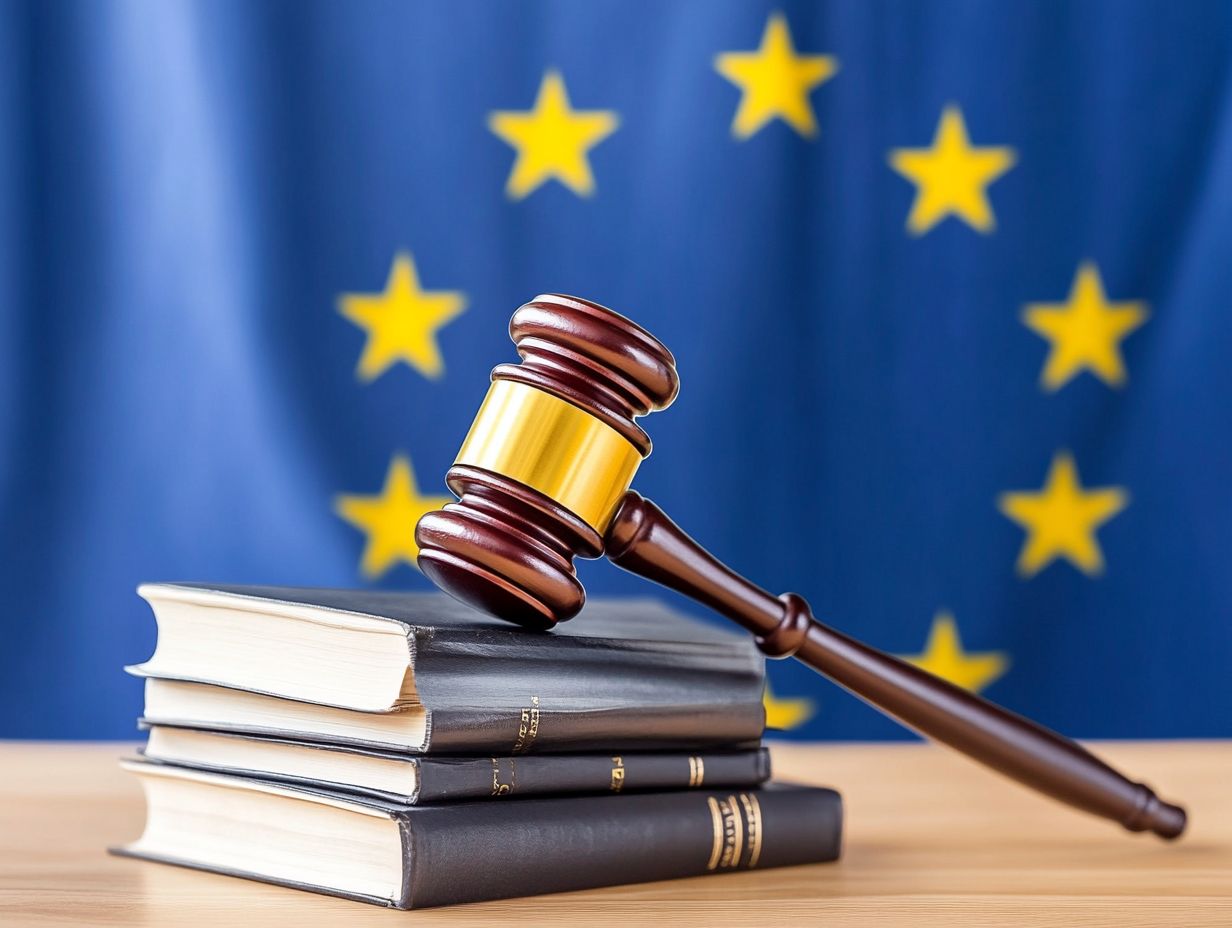
Copyright law in the EU is always changing. It protects a wide range of works, but infringement can lead to serious penalties. For those interested in broader perspectives, exploring copyright law in the United States can shed light on the ongoing challenges with fair use and digital technology.
Types of Works Covered
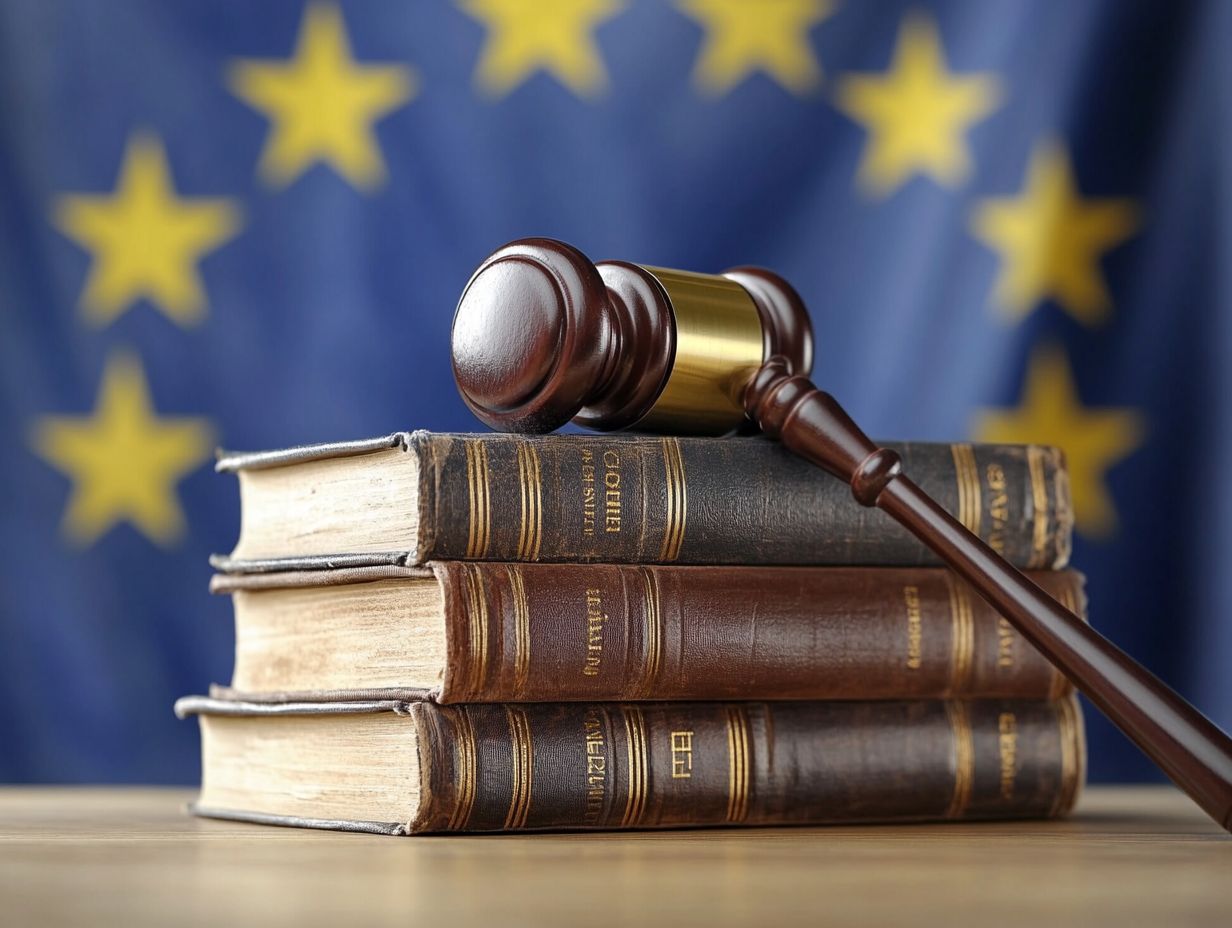
Copyright law in the EU offers strong protection for a diverse range of works. This includes everything from literary masterpieces and artistic creations to computer programs and databases.
It even extends to neighbouring rights, which protect the interests of performers, like actors and musicians.
These works are classified based on their originality and the effort invested in their creation. For instance, literary works cover a spectrum from novels to poetry.
Artistic creations encompass paintings, sculptures, and musical compositions.
Computer programs enjoy protection due to their unique design and functional elements. Databases earn copyright when they showcase creativity in their organization or presentation.
Don’t underestimate the importance of neighbouring rights. They are vital in granting performance rights to artists. This ensures that those who bring creative expressions to life receive the recognition and compensation they rightfully deserve.
Duration of Protection
In the EU, copyright protection generally spans the life of the author plus an additional 70 years. This can differ depending on the type of work and the specific laws in each EU member state.
If the work is created by a corporate entity, the protection period may be significantly shorter often just 50 years from the date of publication.
Moral rights safeguard an author s personal connection to their work. These can continue to apply even after copyright expires in certain jurisdictions.
Copyright duration affects your rights as an author. It ensures that you receive both recognition and financial benefits from your creations.
On the flip side, it complicates access for consumers seeking a diverse range of creative works. Shorter copyright terms can pave the way for more content to enter the public domain, enabling broader use and sharing opportunities.
Infringement of Copyright in the EU
Copyright infringement in the EU constitutes a significant breach of intellectual property rights. Engaging in such actions can expose you to a range of penalties and remedies crafted to safeguard the legal rights of creators.
By understanding these implications, you can appreciate the importance of respecting the authorized use of works and the serious consequences that may arise from unauthorized exploitation.
What Constitutes Copyright Infringement?
Copyright infringement occurs when you, whether as an individual or an entity, violate the reproduction or distribution rights of a copyright holder. This often involves unauthorized actions like reproducing, distributing, or publicly performing protected works.
This violation can manifest in various ways, such as illegally downloading music, sharing videos without permission, or using copyrighted images in your advertising without the creator s consent.
Such actions undermine the rights of original creators and lead to significant financial losses. They stifle creativity within the industry.
In the European Union, there’s a strong legal framework governing copyright laws, shaped by directives that member states must implement. While enforcement may differ from country to country, the overarching goal remains the same: to protect intellectual property while balancing the rights of consumers and creators, as highlighted in the understanding copyright in international contexts.
Penalties and Remedies
The penalties for copyright infringement in the EU can vary significantly. They range from monetary fines to potential criminal charges.
Remedies may include injunctions and damages aimed at rectifying the unauthorized use of copyright-protected works. Don’t ignore copyright rules; the penalties can be severe. You could face hefty fines or even jail time!
Moreover, the severity of these penalties can be influenced by factors such as the scale of the infringement and whether it was committed willfully or innocently. As a copyright holder, you have options to safeguard your interests, including pursuing statutory damages or reasonable attorney fees.
Engaging in stakeholder dialogue is crucial in these situations. It encourages communication among creators, consumers, and legal experts. This collaborative approach helps clarify the boundaries of fair use and significantly reduces instances of infringement, fostering a more respectful and legally compliant creative environment.
Challenges and Controversies in EU Copyright Law
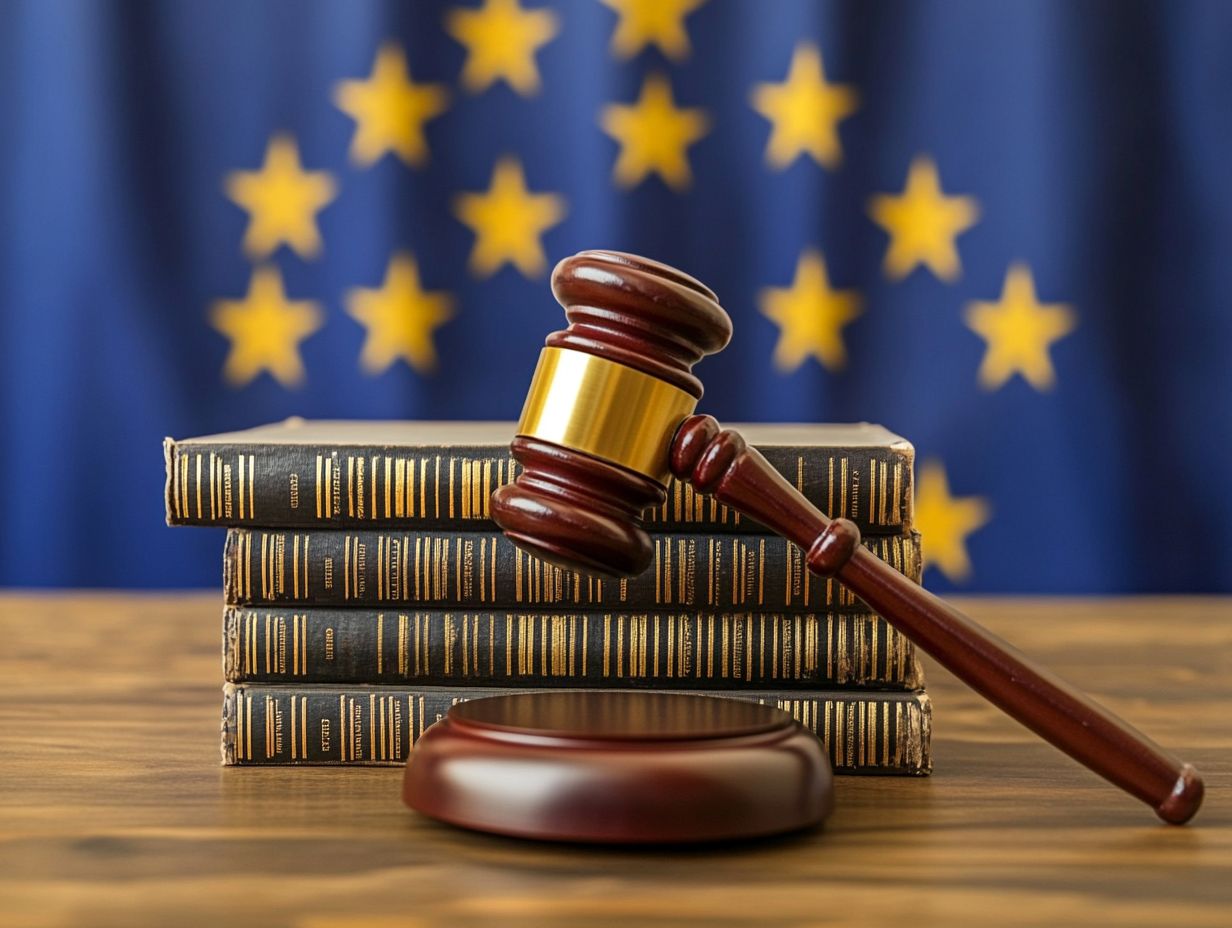
The landscape of EU copyright law presents many challenges and controversies, particularly when it comes to balancing the interests of creators with consumer rights.
You need to navigate the swift changes brought about by digital technology, which continuously reshapes copyright limitations.
Debates on Fair Use and Fair Dealing
The debates surrounding fair use and fair dealing in the EU spotlight the legal exceptions that allow limited use of copyrighted materials without permission. These terms refer to legal exceptions that allow limited use of copyrighted material without asking for permission. They raise critical questions about the balance between copyright protection and access to information.
These discussions underscore the complex legal frameworks that dictate how creators and consumers engage with protected works. For instance, the interpretation of fair dealing can differ dramatically between member states, resulting in varied outcomes for similar cases.
Case studies illustrate the effects of these laws on artists eager to repurpose existing content in transformative ways, as well as on the public, which increasingly seeks access to information. Grasping these nuances is vital, as the implications of copyright exceptions not only shape the creative landscape but also reinforce the right to information in our digital age.
Impact of Digital Technology on Copyright
The rise of digital technology has dramatically reshaped the landscape of copyright law, bringing forth challenges related to online transmission, piracy, and the need to adapt copyright frameworks to a digital world.
You are navigating an increasingly intricate environment where traditional methods of copyright enforcement often fall short. This evolution has spurred a surge in unauthorized sharing and downloading, complicating the relationship between artists and their audiences. While you enjoy unprecedented access to creative works, this convenience frequently comes at the expense of creators’ rights and revenues.
Therefore, it s essential for copyright law to evolve and address these changes, with potential reforms focusing on more effective enforcement mechanisms and clearer guidelines that truly reflect the realities of the digital age, ensuring fairness for everyone involved.
Future of Copyright Law in the EU
The future of copyright law in the EU stands on the brink of substantial reforms and updates, all fueled by the pressing need for international harmonization and the shifting landscape of digital content distribution and consumption, as explored in the future of copyright in an international context.
As you navigate this evolving terrain, understanding these changes will be essential for adapting to new legal frameworks that seek to balance creators’ rights with the demands of a digital world.
Possible Reforms and Updates
This is an exciting time for copyright law! Potential reforms and updates to copyright law in the EU are currently under discussion, with stakeholder dialogue highlighting the necessity for a balanced approach that carefully considers both the rights of creators and the accessibility of content for consumers.
This dialogue encompasses a range of perspectives from artists, publishers, and technology companies, each advocating for their unique interests while acknowledging the critical importance of nurturing creativity and innovation.
Proposals such as simplifying licensing processes and ensuring equitable compensation are being considered, all with the aim of revitalizing the digital market without hindering creative expression. The need for reform is urgent to keep pace with the rapid changes in how we access and share content.
The implications for intellectual property rights are significant; a more flexible framework could empower creators to flourish in a digitally driven landscape. Ultimately, the outcome of these discussions has the potential to redefine how content is shared and monetized, offering advantages to both creators and consumers in this ever-evolving environment.
Frequently Asked Questions
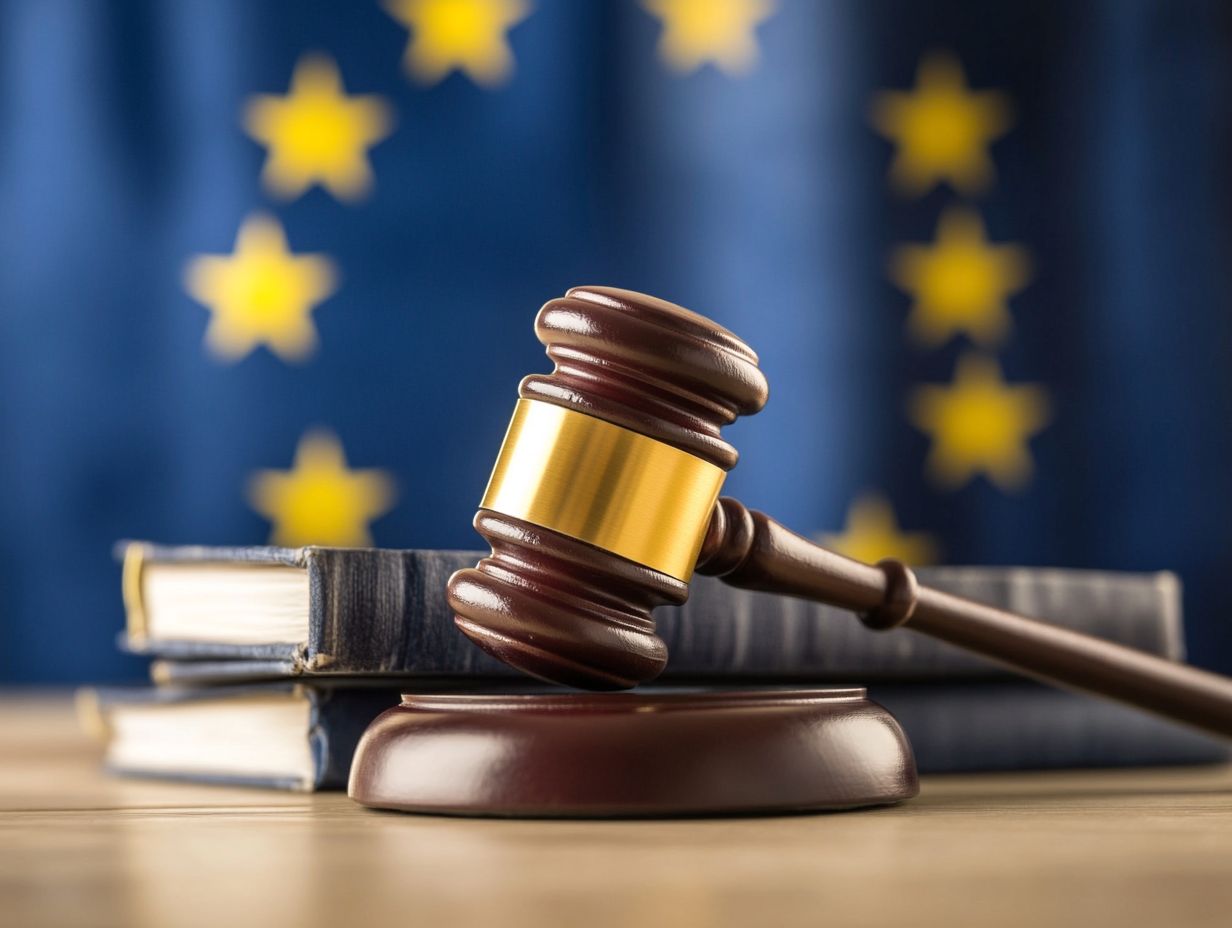
What is Copyright Law in the EU?
Copyright law is a legal framework that grants creators of original works the exclusive rights to use and control their creations. It applies in the European Union (EU) through the Copyright Directive, which harmonizes copyright laws across EU member states.
What Types of Works Are Protected Under Copyright Law in the EU?
In the EU, copyright law protects a wide range of creative works, including:
- Literary works
- Artistic works
- Musical works
- Dramatic works
- Films
- Sound recordings
- Computer programs
How Long Does Copyright Protection Last in the EU?
Copyright protection in the EU typically lasts for the life of the author plus an additional 70 years after their death. In the case of works created by multiple authors, the protection lasts for 70 years after the death of the last surviving author.
Can I Use Copyrighted Material in My Own Work Without Permission?
Generally, using copyrighted material in your own work without permission is not allowed in the EU. However, there are exceptions, such as:
- The right to quote
- The right to parody
These exceptions allow for the use of copyrighted material in specific circumstances.
What Is the Process for Obtaining Copyright Protection in the EU?
In the EU, copyright protection is automatic upon the creation of the work. There is no official registration process, but it is recommended to include the copyright symbol ( ), along with the creator’s name and the year of creation, on the work to indicate copyright ownership.
What Should I Do If My Copyrighted Material Is Infringed Upon in the EU?
If you believe your copyrighted material has been infringed upon in the EU, you have the right to take legal action. It is recommended to seek the assistance of a copyright lawyer who can advise you on the best course of action, which may include:
- Sending a cease and desist letter
- Filing a lawsuit

